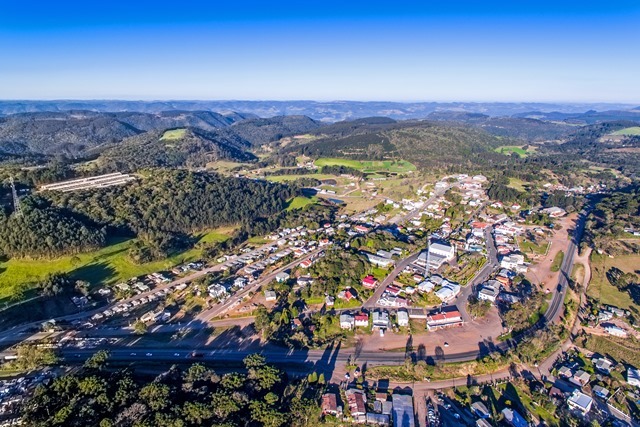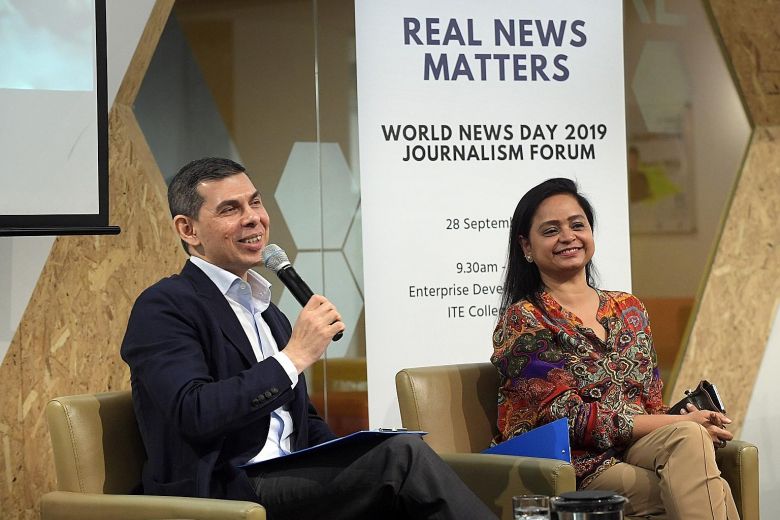First published in Zero Hora. Click here and here to read the original stories.
Summary and impact of the content on the community
The reporters were sought by the Rio Grande do Sul townsfolk with tips on wealthy people who had withdrawn emergency aid meant for the needy. The journalists accessed the government website and confirmed that the names given were listed as beneficiaries. The next step was to find signs of wealth about these people (properties, vehicles, trips) on their social media, as well as to check whether they were civil servants (and thus forbidden from getting benefits). After this verification, the final step was to find these people’s phone numbers and contact them. In some cases, the journalists were threatened. The material which was published served as a basis for investigations that have reached over 600 suspects in Rio Grande do Sul.
FULL STORY:
Misuse of emergency financial aid spread across Rio Grande do Sul
Cases of people with good purchasing power receiving the R$ 600 meant to soften the economic impact of the coronavirus crisis abound.
How about marrying in a heavenly beach in the Caribbean, along the shoreline, and spending your honeymoon in a luxury resort? The ceremony’s even got a set date. A website was specifically created to tell the couple’s story. There, you have all the information so guests can arrive at the destination. Ana Paula Brocco, the bride, is among those who have received R$ 600 in financial aid from the government, a policy created for freelancers, informal workers, small business owners and unemployed people hit by the pandemic.
In social media, Ana Paula, who is from the northwestern town of Espumoso, shows she’s been to the Caribbean and to Paris. When questioned via telephone about receiving financial aid, she confirms having done so and then becomes silent.
Ana Paula’s lawyer, Nicole Frohlich Soares, says her client fits the aid program’s criteria and that the honeymoon will be funded by a reward her fiancé received from a bank. Ana Paula managed to prevent, in court, the news story about her case from being published, but the injunction was overturned (read more below).
Reports such as this one reached the RBS Investigation Group (IG) through citizens who are outraged at what they perceive to be injustices. On one side, people without computers (or who are unable to access the overwhelmed Caixa Econômica Federal website) spend nights before banks, trying to become eligible for the program.
On the other end, people with a good standard of living, people who are educated and able to access high-speed internet, get to swiftly obtain financial aid, despite being far from bereft. This disparity has become recurring in Rio Grande do Sul, as witnessed by reporters. Among the 53.9 million Brazilians eligible for government support, many have their own homes, their own cars, and a constant economic activity.
Among those pinpointed by the IG as aid beneficiaries (receiving between R$ 600 and R$ 1,200, depending on the case), we find a renowned architect and a real estate business partner in Veranópolis. A dentist, some business owners and some politicians (plus some of their family members) in Nova Roma do Sul. A civil servant in Nova Pádua. A businessman in Encantado. And also this woman from Espumoso who leads this news story, whose wedding is scheduled to happen in Punta Cana (Dominican Republic).
In the northern town of Tapejara, nutritionist Letícia Roman Guzzo shows up as a R$ 600 beneficiary. This amount equals six consultations at the town clinic she belongs to. We called that place:
Reporter — How much does a consultation cost?
Receptionist — R$ 110 through a private plan.
In social media, Letícia appears in pictures in Paris and Barcelona. She’s gone on cruises. When asked about the financial aid, she did not respond to any messages, nor did she pick up the phone.
Many citizens are outraged that government aid is received by people with good purchasing power. So much so, that the town of Veranópolis, in the Serra region, woke up on June 10 to a banner displayed beside the local soccer stadium, bearing the words:
“I’m a fat cat and I got six hundred…Welcome to Veranópolis! Here we have over 2,500 welfare receivers, many of them irregular. Almost 2 million in public money for the first installment. Corruption begins within each person.”
The man who put up the banner did not wish to be identified. A similar banner appeared in Garibaldi three days later.
Rio Grande do Sul Federal Police superintendent José Dornelles promises to take action against fraudsters, using data cross-checking and cybernetic tools to do so.
“Generally speaking, the crimes being done are computer device invasion, theft by means of fraud, unauthorized alteration of an information system, major larceny and insertion of false data into an information system, in accordance with each case’s specifications”, Dornelles summarizes.
Are the emergency aid irregularities a result of fraud, opportunism or a mistake? A little bit of each, according to supervisory bodies such as the Federal Court of Accounts (TCU, in Portuguese), which has already identified 620,000 Brazilians under suspicion of having received emergency aid illegally. Part of them in Rio Grande do Sul. Possible irregularities were found through cross-checking data and statements regarding income, CPF and goods under beneficiaries’ names.
This happens because all it takes is vouching for the necessity of aid and finding loopholes in the targeted professional categories. Such is the case for small business owners: a passage in the government ordinance which states that this kind of professional may be contemplated. However, a fair amount of said owners does not fit another prerequisite for welfare: only those who did not receive taxable income over R$ 28,500 in 2018 may be entitled to aid. This means , on average, R$ 2,300 in monthly income (formal or otherwise). Even so, these small business owners receive aid, due to flaws in the program’s oversight.
How to inform the authorities.
The proper channel for informing authorities about fraud is the Fala.Br system, available through this link or through the numbers 121 or 0800-707-2003.
Criteria for receiving emergency aid:
- Being over 18 years old; exceptions made in the case of teenage mothers
- Not having active formal employment
- Not receiving benefits paid by social security, such as retirement pay, pensions or Continuing Benefit Conveyance (BPC, in Portuguese)
- Not being a beneficiary of unemployment insurance, insurance closures or federal coonditional cash transfer, with the exception of Bolsa Família
- Belonging to a family with a monthly income per person of up to half a minimum wage (R$ 522.50) or with a total monthly income of up to three minimum wages (R$ 3,135)
- Not having received, in 2018, taxable income over R$ 28,559.70, i.e. not having had to file an income tax return in 2019
- Being a small business owner, an individual contributor to the General Social Welfare Policy or an informal worker, even if unemployed
- 620,000 payments blocked around the country
The Comptroller General’s Office (CGU, in Portuguese) and the Federal Court of Accounts (TCU) have analyzed 30.5 million emergency aid payments since April. They found nonconformities in about 620,000 benefits, equivalent to 2% of all payments, according to data obtained by the TV show Fantástico, which is broadcast by RBS TV and Rede Globo. The CGU, on the other hand, has identified many property owners or people with income that are not entitled to receiving aid, such as:
- 86,632 people who own vehicles worth over R$ 60,000
- 74,682 business partners with active employees
- 22,942 beneficiaries with tax residences in foreign countries
- 21,856 high-cost watercraft owners
- 17,000 dead people in whose names benefit payments were made
- 85 campaign donors of over R$ 10,000
What the Ministry of Citizenship says:
The Ministry of Citizenship, responsible for managing emergency aid, claims to work around the clock towards the evolution of the greatest benefit ever created, on a national level, in order to aid the most vulnerable among the population. The resources allocated to this act have surpassed R$ 150 billion. It’s far from an easy task says minister Onyx Lorenzoni, due to the meager speed available for building, installing and revising constantly each working process.
Emergency aid uses a governance model which creates control and oversight partnerships with the Comptroller General’s Office (CGU) and the Federal Court of Accounts (TCU). This creates audit trails which are used to identify, enact recovery efforts and provide feedback in order to improve analysis for each bundle of requests for emergency aid. The information fed into the website and the emergency aid app are cross-checked with several official data banks for documentation and economic and social situations. Besides answering for their crimes, those who defy the law are subject to reimbursement of received amounts.
RBS TV’s 11-day censorship
For 11 days, RBS TV was prohibited from publishing a news story about the emergency aid withdrawn by tradesperson Ana Paula Pagnussatti Brocco, from Espumoso. She took to the courts and managed to enact, on two occasions, preventive censorship regarding news stories about whether she fulfills the criteria for receiving benefits.
Judge Daniel da Silva Luz, from the district of Espumoso, granted an injunction that prevented her name and image to be “published” and “disclosed” in news stories. A fine of R$ 50,000 was set for disclosure. RBS TV appealed the injunction, putting forth the argument that the Brazilian Constitution prohibits preventive censorship. The censorious injunction was maintained by Associate Judge Maria Isabel de Azevedo Souza, from the 19th Civil Chamber of the Court. The censorship was overturned, on the 26th, under decree from AJ Maria Isabel herself, who reconsidered her initial decision. The magistrate considered that there was no “exceptional situation” that would justify preventive intervention towards the freedom of the press.
UNDER SUSPICION
- Vineyard owner and dentist are among those who received emergency aid without needing it
- News story also reveals city hall servant and judge’s husband received R$ 600 unduly as well
In the emergency aid bonanza, a vineyard owner is receiving the money allocated by the government towards needy workers. Such is the case of businessman Divanildo Kloss, from Nova Roma do Sul, in the Serra region, who received R$ 600. He lives in a cozy home and his family owns a building in the downtown area. On the phone, Kloss says he applied as a joke and will give back the money.
“I didn’t want to receive it, I gave it back, I just did it to mess around. I just wanted to see if it was going to go through or not, see? I’d never want [the benefits]. I though: as if, it’s never going to go through, since I’ve got some property there. If it got into my bank account, I’ll give it back; I neither need nor want it.”
When informed that his son is also on the list, he replied, “For that, you’ll have to call him. If he’s getting money, I’m not aware, I didn’t know. If he’s signed up, he’ll give it back, no issue. That’s wrong, very wrong.”
On social media, Emanuel Kloss, Divanildo’s son, usually records his patronage of restaurants, plus pictures of beaches and extreme sports. In a picture from last year, he receives the keys to a brand new truck. He did not wish to provide a statement.
The list of those who have received emergency aid while being in good economic circumstances is quite long in Nova Roma do Sul. It includes a dentist, Aline Scapinello, daughter of a known politician from the town. She’s travelled to places such as Angra dos Reis, Arraial do Cabo and Rio de Janeiro, as revealed by her social media. We’ve tried to talk to the dentist; she picked up the phone, but was silent.
Associate Judge’s husband received aid
The lack of control makes it so even the husband of a judge will receive the R$ 600 (despite their family income adding up to more than the cap established by the aid itself). A partner in a license plate factory accredited by Detran in Encantado and married to a magistrate who works in the Metropolitan Region, Pedro Giordani admits he has a motorcycle, a beach house and a boat. And that he signed up for receiving aid. However, he assures he will not withdraw the money.
“I’m going to give it back. It’s just that the factory’s been stopped for 15 days. But who told you about my property? Well, I guess that’s not important right now. This business is over, I’m going to give it back.”
“I fit the criteria”, says architect
A known architect from Veranópolis, Gerson Luiz Capponi, received R$ 600 in emergency aid in May. He is responsible for designing large residential buildings in that town, drives a sports car and lives in his own apartment. Upon being interrogated by the media, he assures he’s got a right to the benefits.
“You’ve just got to read the rules. I’ve got this apartment where I live in, but the family income must be R$ 3,135 per month, tops. Since I live alone, I fit the criteria”, he interprets.
Upon being asked whether his yearly income is under R$ 28,000, as laid out by the rules, Capponi said he was busy and hung up the phone.
Another Veranópolis resident also interpreted that he could receive benefits. Former councillor Rudimar Caglioni, real estate business partner and agent, received R$ 1,200 in emergency aid in April and May. He believed that realtors would be entitled to it, since they would spend several months without selling real estate. He has announced, via Facebook, that he has returned the money.
“In my homeland, everybody’s gotten it: dentists, doctors, businesspeople. We thought it was a leg up for businesses. There was no bad faith on my part, so much so that I’ve already returned the R$ 1,200 and posted about it on Facebook.”
The news crew asked Caglioni if he hadn’t suspected that the benefits were for the needy and if he hadn’t noticed the R$ 3,000 cap on family income. The real estate agent assures us that he had not; he simply had seen a loophole for attaining some financial relief during the pandemic. He understood that the aid could be not just for people, but also for businesses.
Some people, either after being admonished or due to shame, have given up on the benefits. In Veranópolis, the funds for paid emergency aid, which were R$ 1,5 million in April, dropped to R$ 237,000 in May.
Town hall civil servant returned money
In Nova Pádua, town hall civil servant Keyla Marin had also received R$ 1,200 in government aid in April and May, but returned it all last week, after much criticism on social media. She assures that she did not know she was forbidden from using the benefits on account of being a town hall worker. Public officials from any milieu may not be considered for emergency aid, stresses Rio Grande do Sul Comptroller General’s Office (CGU, in Portuguese) superintendent Carlos Alberto Rambo. This is written in Decree 10.316/2020, which explains as such: “aid is vetted to a public official, including those occupying a temporary position or function or in the position of a temporary civil servant which is freely appointed or dismissed through election.”
Keyla says she thought about securing some money due to occupying a temporary civil servant position and being liable to losing her job during the election year. “Afterwards, I saw that there were people who needed it more and gave it back. The weight on my conscience was stronger than any judgement.”
Regarding small business owners, the CGU stresses that only those with a very low income are targeted by government aid.
“The spirit of the benefits is to help those who really need it and can’t sustain themselves. It’s not for someone with a consistent income of over R$ 28,000 per year”, Rambo emphasizes.
In São Marcos, also in the Serra region, it was mayor Evandro Kuwer (MDB)’s daughters who, after receiving R$ 600 each in emergency aid, decided to return the benefits. The mayor told reporter Lizie Antonello, from the Pioneiro newspaper, that both of them (Karen and Kátia) are unemployed and their husbands make little money. Thus, as Kuwer understands it, they fit the program’s criteria.
Fraude, aliás, é outra ponta do novelo de irregularidades no auxílio emergencial. Começam a proliferar nas delegacias policiais queixas de que estelionatários tiram o benefício em nome de cidadãos que sequer sabem que isso aconteceu. Reportagem de GaúchaZH mostrou que pelo menos cem casos desse tipo ocorreram no Vale do Sinos desde maio.
O superintendente da Polícia Federal no Rio Grande do Sul, delegado José Dornelles, promete agir contra fraudadores, usando para isso de cruzamento de dados e ferramentas cibernéticas.
Fraud is, in fact, the other end of the yarn of irregularities in emergency aid. Complaints are proliferating in police stations about fraudsters getting aid in the name of citizens who are not even aware it happened. A GaúchaZH news report has shown that at least a hundred cases like this have happened in the Vale do Sinos region since May.
Rio Grande do Sul Federal Police superintendent José Dornelles promises to take action against fraudsters, using data cross-checking and cybernetic tools to do so.
“Generally speaking, the crimes being done are computer device invasion, theft by means of fraud, unauthorized alteration of an information system, major larceny and insertion of false data into an information system, in accordance with each case’s specifications”, Dornelles summarizes.
How to inform the authorities
The proper channel for informing authorities about fraud is the Fala.Br system, available through this link or through the numbers 121 or 0800-707-2003.
Criteria for receiving emergency aid
- Being over 18 years old; exceptions made in the case of teenage mothers
- Not having active formal employment
- Not receiving benefits paid by social security, such as retirement pay, pensions or Continuing Benefit Conveyance (BPC, in Portuguese)
- Not being a beneficiary of unemployment insurance, insurance closures or federal coondiitional cash tranfer, with the excepption of Bolsa Família
- Belonging to a family with a monthly income per person of up to half a minimum wage (R$ 522.50) or with a total monthly income of up to three minimum wages (R$ 3,135)
- Not having received, in 2018, taxable income over R$ 28,559.70, i.e. not having had to file an income tax return in 2019
- Being a small business owner, an individual contributor to the General Social Welfare Policy or an informal worker, even if unemployed
What the Ministry of Citizenship says
The Ministry of Citizenship, responsible for managing emergency aid, claims to work around the clock towards the evolution of the greatest benefit ever created, on a national level, in order to aid the most vulnerable among the population. The resources allocated to this act have surpassed R$ 150 billion. It’s far from an easy task says minister Onyx Lorenzoni, due to the meager speed available for building, installing and revising constantly each working process.
Emergency aid uses a governance model which creates control and oversight partnerships with the Comptroller General’s Office (CGU) and the Federal Court of Accounts (TCU). This creates audit trails which are used to identify, enact recovery efforts and proovide feedback in oorder to improve analysis for each bundle of requests for emergency aid. The information fed into the website and the emergency aid app are cross-checked with several official data banks for documentation and economic and social situations. Besides answering for their crimes, those who defy the law are subject to reimbursement of received amounts.
RBS TV’s 11-day censorship
For 11 days, RBS TV was prohibited from publishing a news story about the emergency aid withdrawn by tradesperson Ana Paula Pagnussatti Brocco, from Espumoso. She took to the courts and managed to enact, on two occasions, preventive censorship regarding news stories about whether she fulfills the criteria for receiving benefits.
Judge Daniel da Silva Luz, from the district of Espumoso, granted an injunction that prevented her name and image to be “published” and “disclosed” in news stories. A fine of R$ 50,000 was set for disclosure. RBS TV appealed the injunction, putting forth the argument that the Brazilian Constitution prohibits preventive censorship. The censorious injunction was maintained by Associate Judge Maria Isabel de Azevedo Souza, from the 19th Civil Chamber of the Court. The censorship was overturned, on the 26th, under decree from AJ Maria Isabel herself, who reconsidered her initial decision. The magistrate considered that there was no “exceptional situation” that would justify preventive intervention towards the freedom of the press.
__
One must praise the press’ efforts towards researching and pinpointing cases of fraud and diversion of public resources that have been committed, especially when it affects the neediest among the population. Investigative journalism has shown itself to be a collaborative element regarding national transformation, shedding light on issues that must be better examined by all, many times motivated by demands borne out of society itself.
The series of new stories published by Zero Hora regarding fraud in emergency aid given by the federal government in order to minimize the critical economic circumstances many Brazilians see themselves in due to the pandemic is one example of journalism’s role in the purification of society. Besides demonstrating that civil vigilance does exist, the news story serves as an information provider so the authorities can begin to act.
No âmbito da Polícia Federal, em se tratando de desvio de recursos públicos da União, as publicações do Jornal Zero Hora funcionaram como “notícia-crime” para estabelecimento de procedimentos investigatórios. Os fatos noticiados agora passam a ser analisados sob a ótica policial, com a busca da materialidade necessária para o prosseguimento da persecução penal, observadas as normas legais e o princípio da ampla defesa.
Caso as investigações resultem em ação penal, e, ao final do processo, haja condenação, o ciclo resultará completo, iniciado pela voz da sociedade através da imprensa, conduzido pelos atores do sistema jurídico e com a aplicação da pena pelo Estado.
José Antonio Dornelles de Oliveira, Superintendente Regional da Polícia Federal no Rio Grande do Sul
Within the Federal Police, when it comes to diversion of public resources, the articles published by Zero Hora work as something of a “crime report” for establishing investigation procedures. The facts that were reported are now analyzed under the lens of police work, which seeks a material basis for forwarding criminal prosecution, keeping in mind legal provisions and the right to a full defense.
In case the investigations result in penal action and, at the end of the process, a conviction is established, the cycle will be complete, set in motion by the voice of society through the press, conducted by the agents of the legal system and ending in the application of a punishment by the State.
José Antonio Dornelles de Oliveira, Regional Superintendent from the Rio Grande do Sul Federal Police Department.





